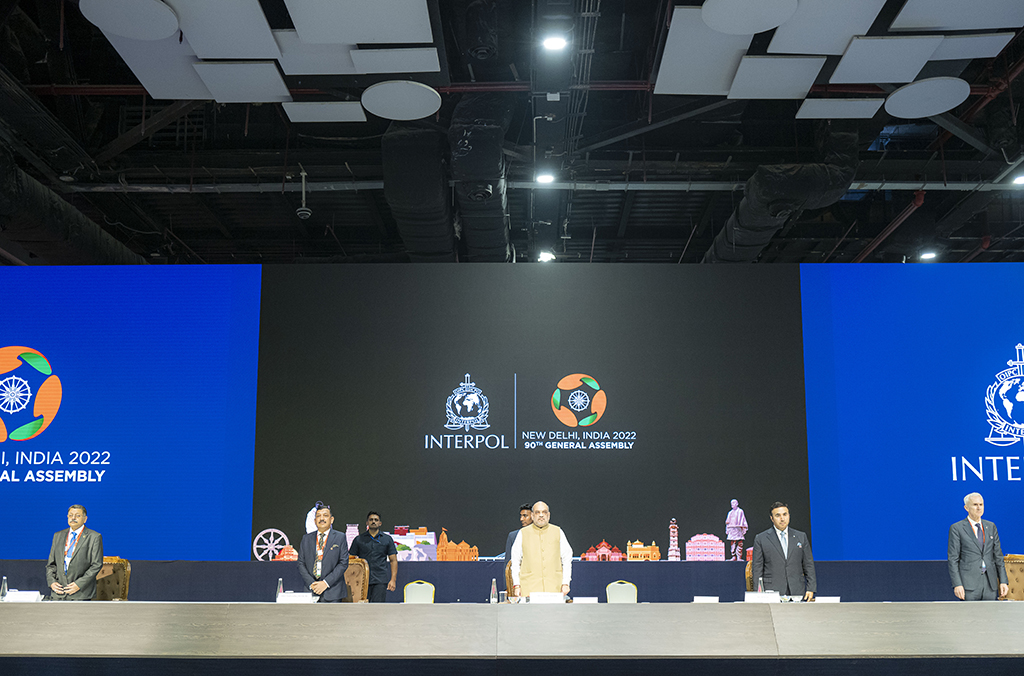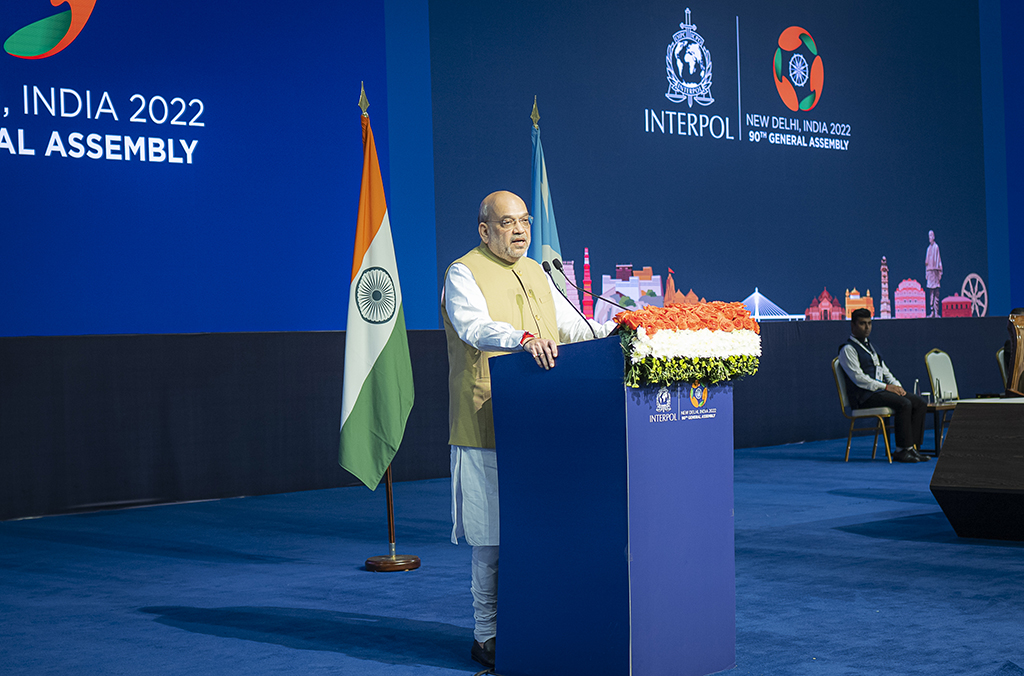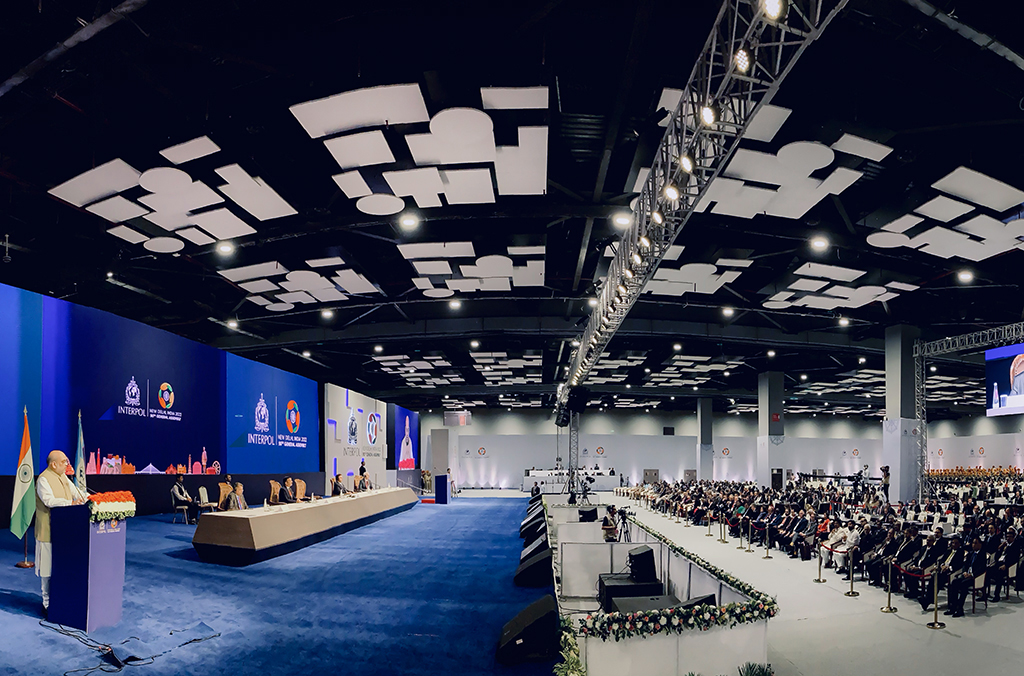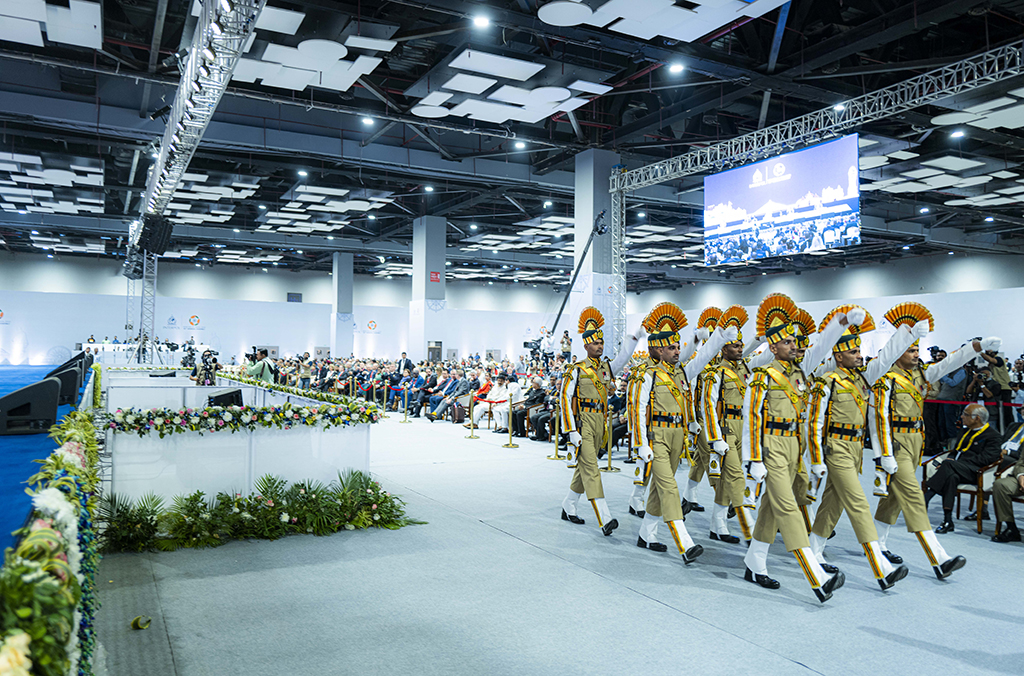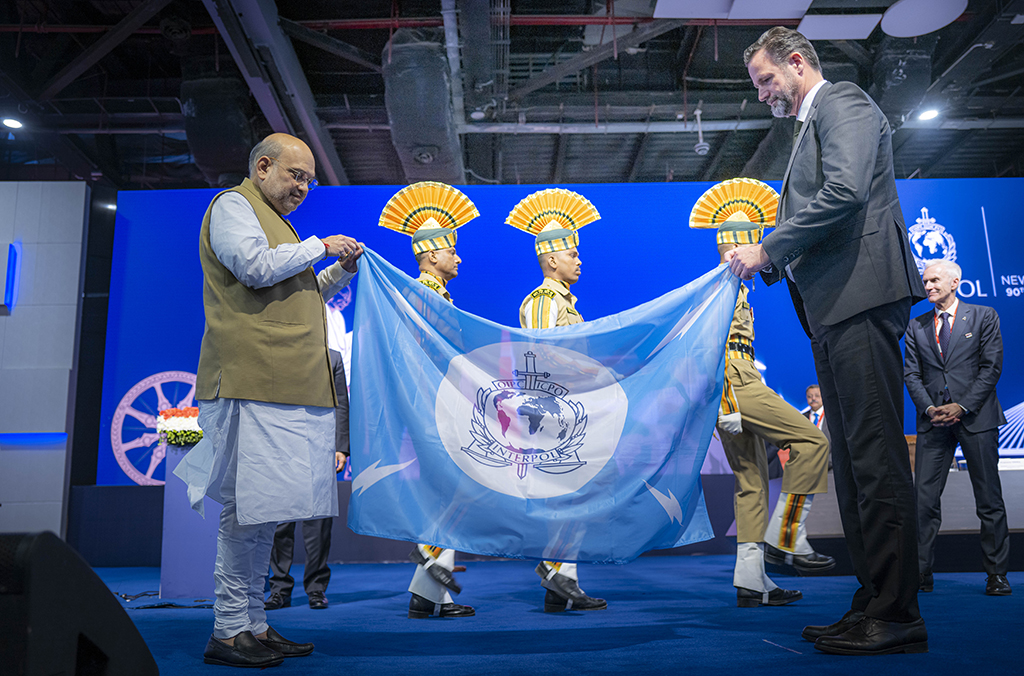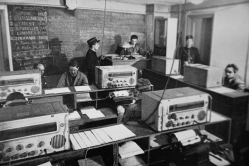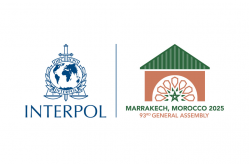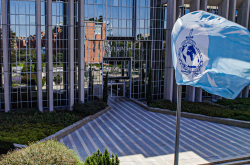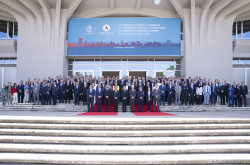NEW DELHI, India – The 90th INTERPOL General Assembly has ended with a series of resolutions to further strengthen INTERPOL’s network and capabilities as the Organization heads into its centenary year.
With discussions on how innovation and technology can be better integrated into INTERPOL’s day-to-day activities to support its 195 member countries, the four-day (18-21 October) conference saw the launch of the INTERPOL Metaverse, the first specifically designed for law enforcement worldwide.
Officially closing the General Assembly, Union Home Minister Amit Shah said, “Over the last one hundred years INTERPOL has become a very large and effective platform comprising 195 countries and is playing a very important role in controlling crime across world.
“Today, crime has become borderless and, if we want to stop these crimes and criminals, we need to think beyond conventional borders.”
INTERPOL’s first-ever Global Crime Trend report was also presented to delegates. Using data from the Organization’s 195 member countries, databases and external sources, the report highlights current and emerging threats at both the global and regional levels.
Financial crime, particularly money laundering, was among one of the highest ranking threats. To address these crimes, delegates approved a resolution calling for greater action to tackle financial crime and corruption. This would include the creation of an Expert Working group to assess various proposals In relation to the exchange of financial information and the tracing and recovery of criminal assets.
Delegates also approved a resolution calling for greater efforts to identify and investigate online child sexual abuse through the creation of specialized units and increased use of INTERPOL’s International Child Sexual Exploitation database.
With an increasing number of unidentified human remains and individuals in relation to missing person cases, fuelled by global mass migration and human trafficking, the General Assembly called for more effective use of the I-Familia database by member countries.
The result of cutting-edge scientific research, I-Familia seeks to identify missing persons or unidentified human remains by using DNA samples from family members.
Recognizing the need to prioritize diversity at the General Secretariat, the General Assembly approved a resolution supporting a series of measures to be implemented in order to proactively seek candidates from under and unrepresented countries.
The General Assembly also elected three new Executive Committee members. Peter De Buysscher of Belgium was elected as Vice President for Europe, with Alaa El Din Mohamed Abdalah Raga from Egypt and Anne-Marie Nainda from Namibia elected Delegates for Africa. All three new Executive Committee members will serve a three-year term.
The 91st General Assembly will be held in Vienna, Austria, where INTERPOL was officially created in 1923.




